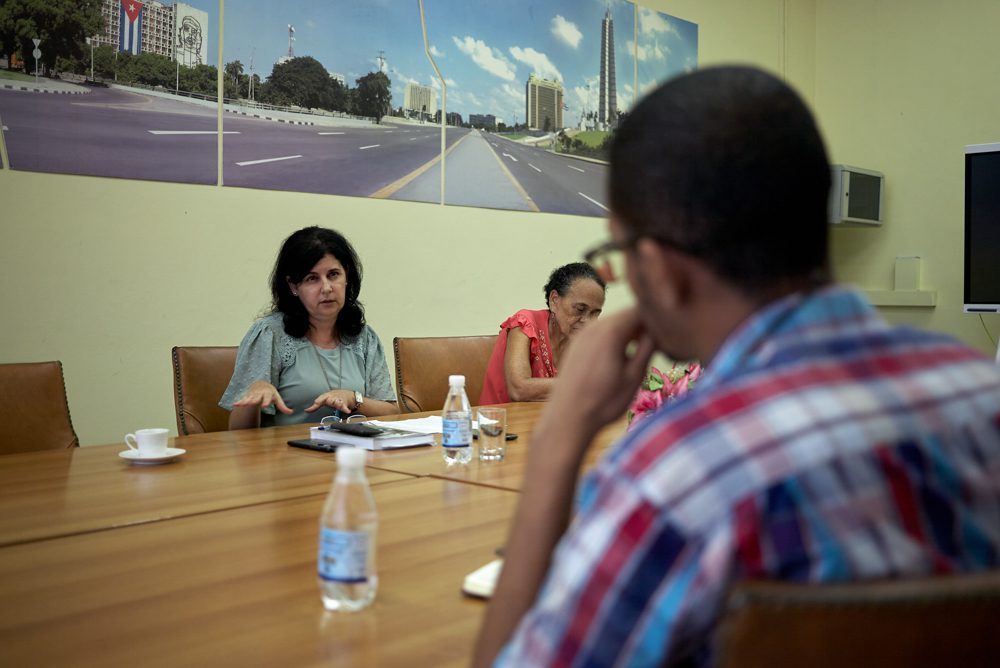19th June 2023
Potentially far-reaching changes in the future organisation of Cuban state enterprises that may enable a much higher degree of market related autonomy are being considered for inclusion in new business laws.
Speaking to Cubadebate in an extended interview, Yovana Vega, the Director of the State Business System of the Ministry of Economy and Planning, indicated that studies are underway based on the recognition that Cuba’s state enterprises are organised in a “very vertical and rigid” manner.
Noting that not all higher business development organisations (OSDEs, which control other related state business entities) have responded to their intended task of providing technological linkages, purpose and direction, Vega suggested that thinking had changed.
“The debate today focuses on the fact that, although there are business groups all over the world, their formation occurs naturally, because companies come together; among other factors, because it gives them financial strength, and in relation to the market,” she said.
To achieve such changes, Vega told the media platform, work was under way on how this should be conceptualised in the proposed new business law. “In Decree Law 34 it is said that independent companies can exist; however, there are very few companies of this type in Cuba.” “These steps entail an analysis and a re-dimensioning …. all this is being evaluated in relation to the business bill,” she said.
Vega was quoted as saying that among the most important changes envisaged is the possibility that many more companies will be able to establish their own salary systems and distribute profits based on increased productivity. There is evidence, she noted, that remuneration had a positive impact on increased work productivity.
Speaking about the relationship between government and business, Vega said that “Autonomy and governance over the business system is also being analysed. This is one of the critical points, because today all the ministries …. affect the business system of the country,” she said, before noting that “the process of separating state and business functions has not been effective”.
As a part of the process of change, she said that in parallel, work is being done on the way in which state companies are classified. Today we are proposing, Vega said, that companies be classified in three ways “because a company whose raison d’être is to systematically and sustainably obtain high yields and exports is not the same as a company whose purpose is to guarantee equitable access to a certain essential product or service for the population, such as the regulated family basket.”
In future, she suggested, all companies will not be subject to the same type of regulations.
A preliminary classification has placed state companies into three categories, she said.
These were she noted: Firstly, “those created to have high returns on the resources that the State has invested in them, such as the export sector” comprising almost 80% of such entities”; secondly, “the monopolistic companies which manage the fundamental means of production and the country’s infrastructure, such as Union Electrica (the country’s power generator) and Ferrocarriles de Cuba (the railways operator); and a third group, “those constituted to guarantee basic services to the population, such as pharmacies and opticians, commerce, and public transport.”
Indicating that at issue now was how to regulate the three categories of state enterprise, Vega said companies in the first group will be expected to “operate in conditions of competition between themselves and with other actors in the economy,” while as monopolies the second group, where there is no competition, will require regulating differently, “especially in terms of prices, salaries, etc.” The companies in the third group providing basic services will require, she said, yet another regulatory approach.
This will mean she observed, “Companies will have a general scope of action and differentiated regulations, ranging from price formation, [their] relationship to the State budget, [and] to their salary scope.”
The new laws relating to state companies, she added, as with Cuba’s macroeconomic stabilisation programme and decision to decentralise power, will require both national subordination and territorial subordination involving municipal government “as the fundamental cell for economic development from the country.”
Cubadebate also reported her saying that in the restructuring of Cuba’s state business system there will be a review of how Cuba’s superior business management system of OSDE’s operate and what they should really be for.
The Caribbean Council is able to provide further detail about all of the stories in Cuba Briefing. If you would like a more detailed insight into any of the content of today’s issue, please get in touch.
Photo: Enrique González (Enro)





